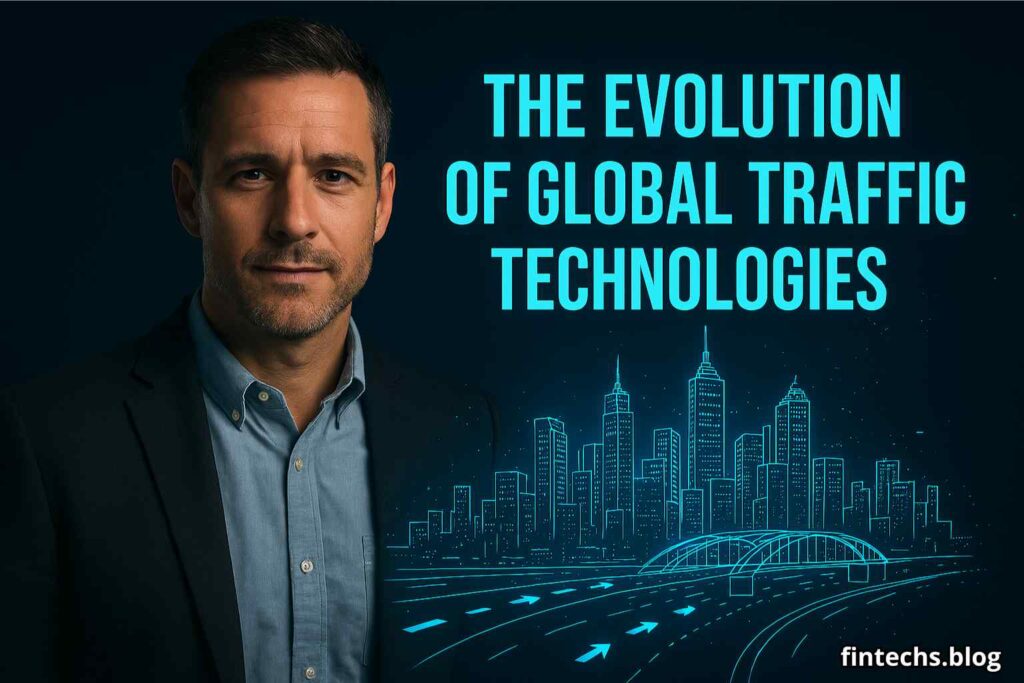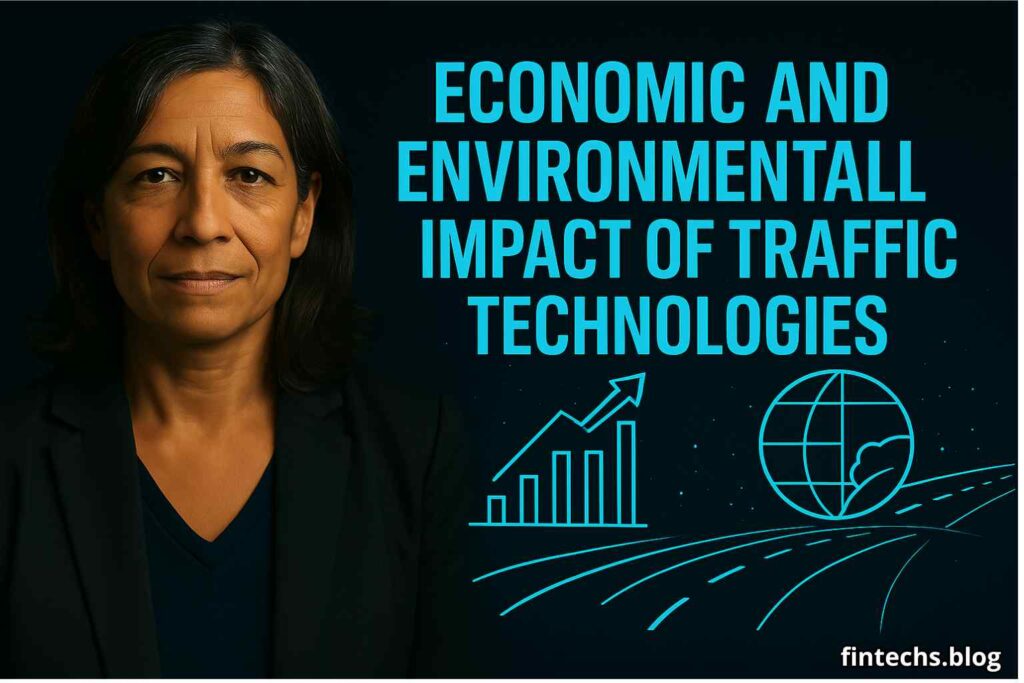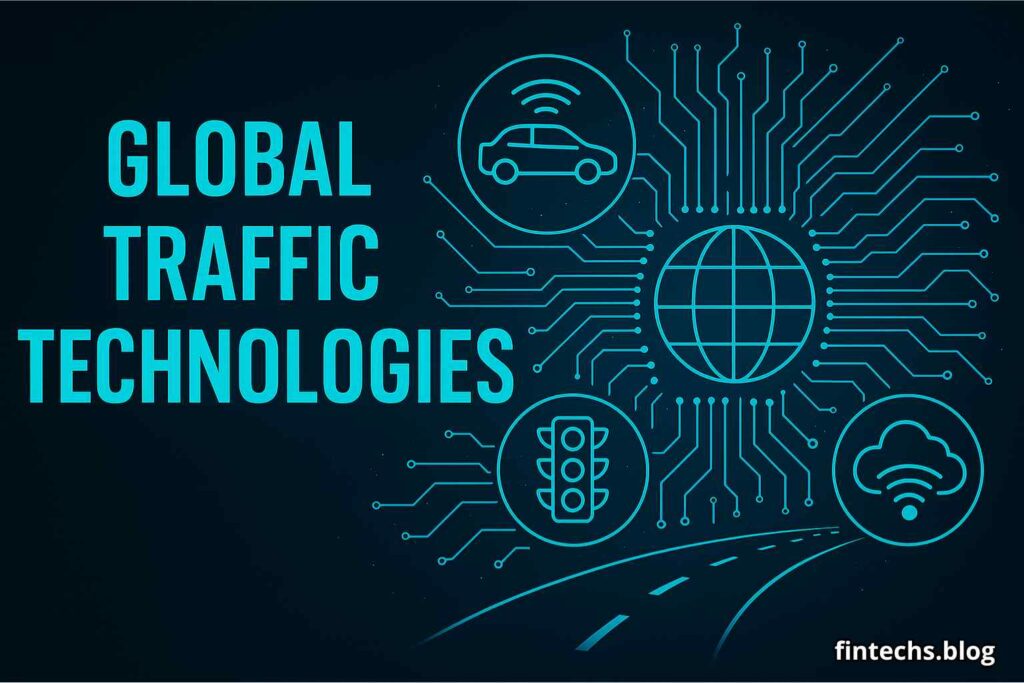Introduction
Urban development is no longer just about constructing roads and bridges — it’s about building smarter, safer, and more responsive cities. As population density and vehicle ownership continue to rise, traditional traffic systems are struggling to keep up with demand. This is where global traffic technologies are stepping in to transform how cities function. By combining intelligent software, IoT-enabled infrastructure, and AI-driven analytics, these systems are reshaping urban mobility and optimizing the way we move through city spaces. From smart signals to emergency response integration, these innovations are making our roads not only more efficient but significantly safer. In this blog, we’ll explore how global traffic technologies are redefining modern transportation and why they matter more today than ever before.

The Evolution of Global Traffic Technologies
Global traffic technologies have transformed the way cities and municipalities manage traffic flow and road safety. With the constant growth of urban populations and increasing vehicle numbers, traditional traffic management systems are no longer sufficient. That’s where global traffic technologies come into play. These are innovative systems that integrate smart sensors, real-time data analytics, and AI to optimize the flow of vehicles, reduce congestion, and improve emergency response times.
From intelligent traffic signals to adaptive traffic control systems, cities are now relying on real-time data to make smarter decisions. The focus is no longer just on traffic lights—it’s about building interconnected urban mobility networks that react to live conditions. Countries across the globe, including the USA, Germany, the UAE, and Singapore, are actively implementing these technologies in their smart city infrastructure projects.
How Global Traffic Technologies Enhance Road Safety
Road safety remains one of the most important concerns for city planners. Traditional measures such as speed bumps and red-light cameras have served their time but are not foolproof. Global traffic technologies take a more predictive and proactive approach to accident prevention. By using machine learning and predictive analytics, these systems can detect unusual driving behavior, road hazards, or traffic bottlenecks even before they become a problem.
For example, emergency vehicle preemption technology allows ambulances or fire trucks to automatically change traffic lights in their favor, reducing response times and potentially saving lives. Similarly, real-time pedestrian detection systems alert vehicles and traffic lights about human movement at crosswalks, greatly reducing the chance of accidents.

Economic and Environmental Impact of Traffic Technologies
One often-overlooked benefit of global traffic technologies is their impact on the economy and environment. Traffic congestion is not just a time-waster; it costs cities billions of dollars in lost productivity and increased fuel consumption. Smart traffic management helps vehicles move more efficiently, reducing idle times and fuel emissions.
Moreover, by synchronizing signals and rerouting traffic during peak hours, cities can drastically cut down on pollution and stress among drivers. These green benefits align with the global push toward sustainability, making traffic tech a crucial part of future urban development. The long-term savings in infrastructure wear and tear also justify the initial investments in these systems.
Key Features of Global Traffic Technologies
- Intelligent Signal Control: These are traffic lights that adapt to real-time traffic conditions. They use data from cameras and sensors to adjust green/red durations, reducing wait times and keeping traffic flowing smoothly.
- Emergency Vehicle Preemption: This feature gives priority to ambulances, fire trucks, or police cars by automatically turning traffic signals green in their path. It enhances public safety and speeds up response times.
- Real-Time Traffic Monitoring: Cameras, drones, and sensors monitor traffic in real time, providing valuable data on congestion, accidents, and road usage. This information is crucial for both drivers and traffic authorities.
- Pedestrian and Cyclist Detection Systems: These systems improve safety for non-motorized road users. They detect movement at crosswalks or bike lanes and trigger alerts or signal changes to prevent accidents.
- Traffic Analytics and Predictive Modelling: Using AI, these systems predict traffic patterns based on historical and real-time data. City planners can use this to make decisions about road expansions, detours, or infrastructure improvements.
Industries Benefiting from Global Traffic Technologies
Several sectors are seeing measurable gains from advancements in traffic technologies. The most obvious is the public transportation sector. Buses and trains equipped with GPS and smart scheduling systems can provide more reliable service to commuters. Logistics and delivery companies also benefit by using predictive traffic data to plan optimal routes, ensuring timely deliveries.
Emergency services, construction management firms, and urban planners are leveraging global traffic technologies to make data-driven decisions. Even ride-sharing companies like Uber and Careem use this data to enhance user experience and reduce ETAs. In short, any industry that involves movement through urban environments stands to benefit from this evolution.

What’s Next for Global Traffic Technologies?
Global traffic technologies are still evolving. With the rise of autonomous vehicles and IoT-enabled infrastructure, the future promises even more seamless urban mobility. Artificial intelligence will play an even larger role, learning from every vehicle movement to create smarter roads. In the coming years, we might see entire cities run on traffic systems that require minimal human intervention.
Moreover, technologies like 5G and edge computing will enhance real-time decision-making, while blockchain could be used to secure traffic data and transactions. As cities become smarter, the integration of these technologies will not just be an option—it will be a necessity.
Also Read: Education Technology Companies in the Digital Era 2025
Conclusion
In a world that increasingly relies on real-time solutions and sustainable systems, global traffic technologies represent a forward-thinking approach to solving some of urbanization’s biggest challenges. They don’t just manage traffic — they enhance emergency services, reduce environmental impact, and empower data-driven decision-making. The deployment of these technologies reflects years of global research, development, and implementation led by transportation experts, engineers, and policy-makers. Their effectiveness is backed by measurable data, trusted implementations in smart cities around the globe, and the growing trust of municipalities and governments seeking future-ready infrastructure.
FAQ About Global Traffic Technologies
Q1: Who bought GTT?
Ans: Global Traffic Technologies (GTT) was acquired by Miovision, a Canadian traffic management tech company, to enhance smart city solutions and traffic control innovations.
Q2: How does a global traffic manager work?
Ans: A Global Traffic Manager (GTM) distributes internet traffic across multiple servers worldwide to ensure availability, load balancing, and faster access for users.
Q3: What are traffic control technologies?
Ans: Traffic control technologies include systems like sensors, cameras, and software that manage traffic flow, signal timing, and safety at intersections and roads.
Q4: What is 3M Opticom priority control system?
Ans: The 3M Opticom system is a priority control solution that allows emergency vehicles to change traffic signals, reducing response time and enhancing safety.
Q5: Who owns Global Traffic Technologies?
Ans: Global Traffic Technologies is currently owned by Miovision, following their acquisition aimed at expanding traffic signal optimization solutions.
Q6: Is Traffic Tech a 3PL?
Ans: Yes, Traffic Tech is a third-party logistics (3PL) provider offering freight solutions, supply chain management, and transportation services globally.







